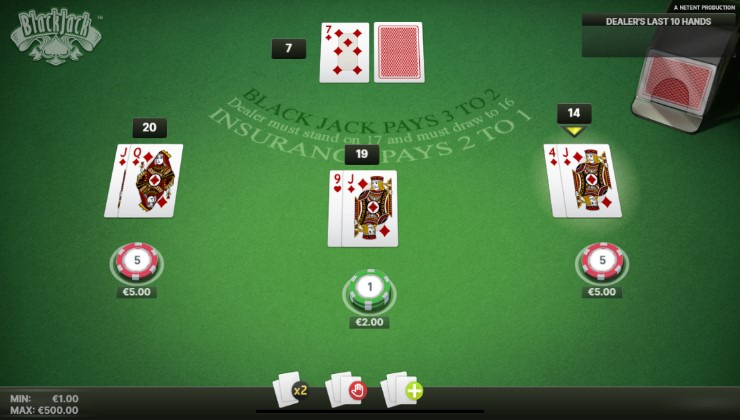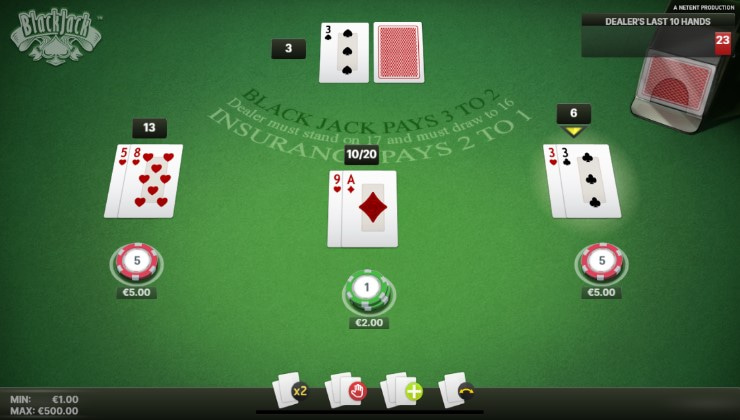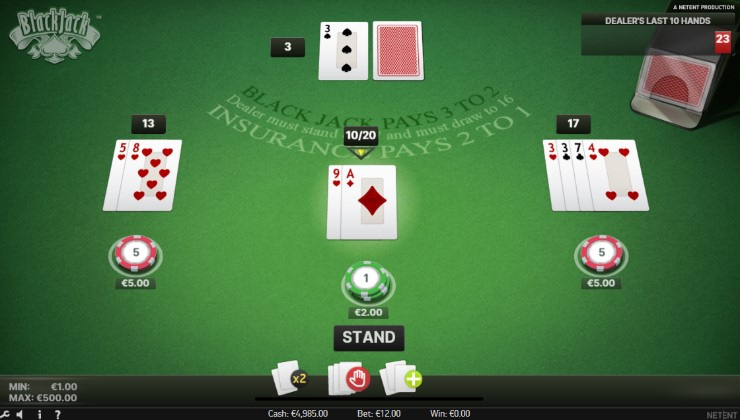Blackjack uses a conventional 52-card deck, with each card having its own value. Understanding blackjack card values is an important part of playing the game effectively.
In this guide, the values are explained in a simple way. This will help you know what role they play in blackjack, and what strategies base themselves on these values.
The Role of Card Values in a Blackjack Game
When playing blackjack online, the idea is to try and get as close to a total of 21 with your card hand, without going over that number. As noted, a 52-card conventional deck is used for playing blackjack, with up to eight decks of cards being used at online casinos. This all depends upon the variation of the game that you’re playing.
All the values in blackjack have an impact on the outcome of a round. They are:
- You get a hand worth 21 or below and a higher score than the dealer’s hand – you win.
- You get a hand worth 21 or below and the dealer busts– you win.
- You get a hand worth 21 or below, but the dealer beats your score – you lose.
- You go beyond 21 with your hand, meaning you bust – you lose.
- You and the dealer both get the same value hand, meaning a push occurs – you receive your bet back.
What Are Values in Blackjack?
Here, we have some basic information surrounding the hands that you can acquire in a game of blackjack. Understanding card values means you should know what the next step to take is as a result, giving you an expected advantage.
In blackjack, you’re able to receive hard and soft card hands. A single card makes the difference between the two, and that is the Ace.
At the start of a blackjack round, you are dealt two cards. If one of those cards is an Ace, your hand is considered soft. This is because the Ace can be used as 1 or 11, depending upon the other cards you hold. A hand without an Ace is considered a hard hand, as you cannot treat your total as two different values.
Face Cards

These are represented by Jacks, Queens, and Kings. Also known as royal cards, for obvious reasons, the face card values in blackjack for them is 10. There is no difference between each face card when it comes to value.
The Ace is the only one that can be worth more than a face card. This one can operate with a value of 1 or 11.
Number Cards
As well as the face cards, there are standard values in blackjack to consider. These exist in the shape of all the other cards in a single deck. Each picture card is worth the number printed on them.
- Card 2 is worth 2
- Card 3 is worth 3
- Card 4 is worth 4
- Card 5 is worth 5
- Card 6 is worth 6
- Card 7 is worth 7
- Card 8 is worth 8
- Card 9 is worth 9
- Card 10 is worth 10
Blackjack Strategies Based on Card Values
The blackjack hand values can be very helpful when it comes to certain blackjack strategies. If you know the values in your hand, you should be able to make proper, strategic decisions during gameplay. This means you should always know when to hit, stand, double-down, split, and ask for further cards.
Let’s say that you have been dealt an Ace with a face value 9 as your first two cards. That’s a soft blackjack hand, equating to 10 or 20, depending on how you value the Ace in the blackjack rules for card values. A strategic move here would be to stand with the 20, as it is only 1 point under 21. The dealer’s up-card is also a 3, which makes this the best possible move.
Knowing the hand value in a game of blackjack ensures you can make ideal decisions for your hand(s). This is especially true if you are putting a specific betting system or strategy to use. Blackjack card counting values are all-important to such gamers, for example. The values also combine with a basic blackjack strategy, helping you to potentially make better decisions.
Conclusion
This simple guide provides details on the different blackjack card values, which you can use for your online blackjack games. Try to remember that the face cards all equate to 10 and that the Ace can be 1 or 11. The rest are valued as they are. You should then be able to understand the difference between soft and hard hands and take appropriate actions when you are dealt specific hands as a result. Knowing when to hit, stand, split, and so on, all depends upon the cards you receive.

